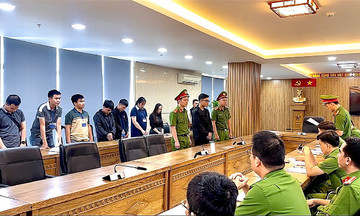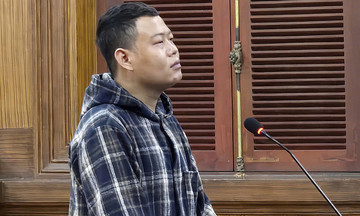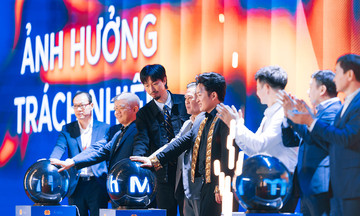Guangzhou Daily News reported on 11/7 that the Nansha District Court in Guangzhou city issued a ruling on the labor dispute between Yu and his company.
Yu worked as a product demonstration store manager in a shopping mall for the company since 3/2021. On 26/9/2024, Yu received a notice via WeChat that his labor contract was being terminated immediately. The company claimed Yu had been negligent in his duties, including "sleeping at the cashier counter while there were still customers shopping in the store during working hours" and "closing the store during working hours."
Believing the company's unilateral termination of his labor contract was illegal, Yu filed a complaint with the labor arbitration council, demanding the company pay his outstanding salary, housing allowance, and compensation. The council agreed with Yu's request, but the company refused to comply. As the two sides couldn't reach an agreement, the case went to court.
In court, the company presented a 2-second video showing Yu sitting at the cashier counter with his head in his hand, eyes closed, and leaning back in his chair while two customers were in the store.
Yu explained that he started work at 9:30 that day and finished at 22:30, handling all the work alone. By around 20:00, after working for more than 8 hours, he was exhausted and closed his eyes to rest for just 3 minutes. He maintained he wasn't actually asleep and was still attentive to customers. Regarding the store closure, Yu said he was working alone that day and had to temporarily close the store to use the restroom.
The judge ruled that after working continuously for more than 8 hours without a shift change, Yu's fatigue and need to rest was a normal physiological response. The company also had no evidence that Yu slept for an extended period or that his actions affected his work. In the second instance, Yu provided a reasonable explanation for temporarily closing the store.
The judge pointed out that Yu's actions weren't a serious offense, and the company had no evidence proving the actions caused "serious losses" as stipulated by regulations. The company's termination of the labor contract lacked factual and legal basis, constituting an unlawful termination, therefore requiring compensation.
The court ordered the company to pay Yu 217.2 CNY in outstanding salary, 3,000 CNY in housing allowance, and 49,572.24 CNY in compensation for the unlawful termination, while dismissing all the company's claims.
The judge emphasized that the right to rest is a fundamental right of workers under the constitution. Even during a workday, employers should provide reasonable time for employees' meals and breaks. Ignoring workers' right to rest and solely pursuing work efficiency might bring short-term benefits, but hinders long-term development.
Tue Anh












